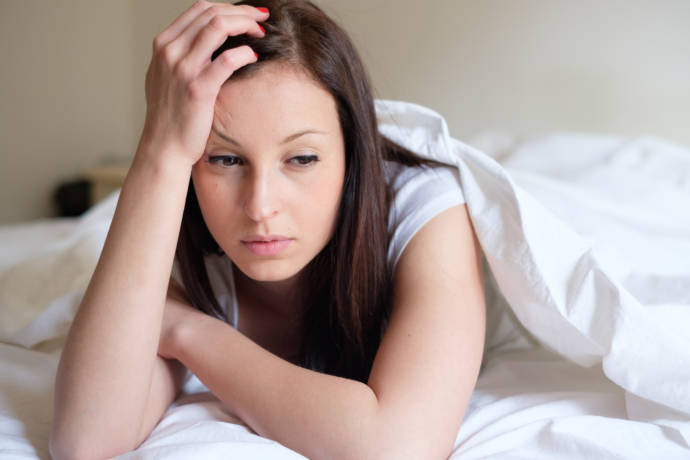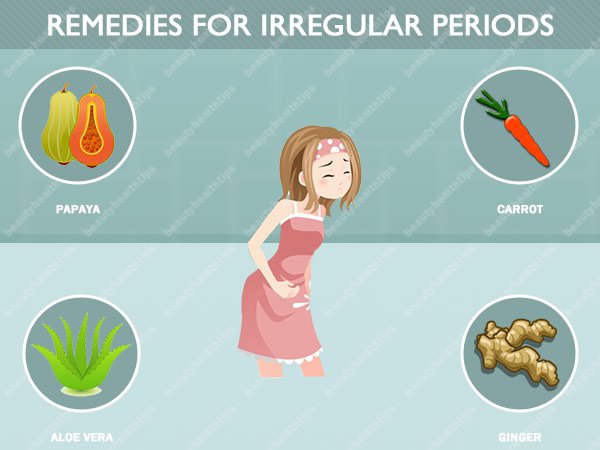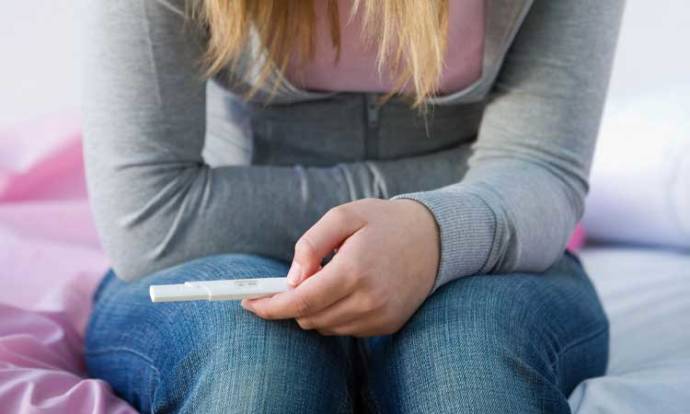Premenstrual Syndrome is a group of signs and symptoms which a women experience five to fifteen days before her menstruation. This mainly includes physical, mental as well as behavioral changes. More than 80% of women experience these symptoms before her periods. The intensity of symptoms varies from mild to severe in different women and they usually go away with the start of bleeding.
The worst part of PMS is, its symptoms recur every month and disturbs a women’s normal life.
Signs and Symptoms of PMS
As symptoms of PMS vary in each woman, there are more than 200 symptoms which are associated with this condition. Below are few common symptoms of PMS, which are experienced by approx. 70% of the women suffering from PMS.
Emotional symptoms of PMS include:
- Depression
- Increased emotional sensitivity
- Irritability
- Stress and anxiety
- Mood swings
- Angry outbursts
- Crying spells
- Poor concentration
- Insomnia (sleeplessness)
- Changes in sexual desire
- Social aversion
Physical symptoms of PMS include:
- Tenderness of Breast or swelling
- Bloating
- Weight gain
- Acne
- Headache
- Fatigue
- Abdominal cramps
- Constipation
- Change in appetite such as overeating and food cravings
- Muscular and joint pains
Most severe form of PMS is separately named as Premenstrual Dysphoric Disorder (PMDD). It is experienced by 7 to 8% of the women. In this condition the intensity of symptoms is so severe that it becomes almost impossible for a woman to maintain her work balance, personal relationships and also social liabilities. Sometimes it become so distressing that patient has suicidal feelings. For this reason, PMDD is considered as a mental health problem.
Causes of Premenstrual syndrome
However the cause of PMS is still under consideration. Our medical researchers believe that there are some hormonal and chemical changes in a female body before menstruation which cause these symptoms. And also lifestyle factors affect these symptoms to a larger extent. Let’s discuss how:
- Hormonal Changes: Just prior to periods the level of estrogen in a female body starts increasing and on the other hand progesterone level starts falling. This shuffle in the level of hormones causes anxiety, irritability and mood swings.
- Chemical Changes: The change in the level of estrogen and progesterone before periods also affects certain chemical reactions in brain. Most evident being the fall in serotonin level, which is brain’s neurotransmitter and is responsible for our emotional reaction. Fall in serotonin level can lead to mood swings, sleeplessness and other emotional disturbances.
- Lifestyle Factors: Studies suggest that women who are obese are more prone to have PMS. So few lifestyles like sedentary life, unhealthy diet, smoking, drinking or stress also leads to PMS.
- Low levels of Vitamins and Minerals.
- High Sodium, alcohol and caffeine leads to water retention and bloating.
- Female having past medical history of postpartum depression and family history of any mental illness are more prone to develop PMS.
When to visit a doctor?
Mild form of PMS is present in almost every woman. But if symptoms of PMS are recurring predictably each month and are so severe that they interfere with normal routine functioning of a woman then it is better to see your doctor.
How to diagnose PMS?
Your health care provider can help you in confirming weather you are suffering from PMS or not. For that you need to note down your symptoms prior to menstruation for at least three to four months.
Along with this your doctor may do few tests to rule out other medical conditions which usually mimic the same symptoms of PMS:
- Physical examination
- Pregnancy test
- Gynecological examination to rule out endometriosis.
- Thyroid hormone test to exclude hypothyroidism.
- Complete Blood Cell count to rule out anemia.
- Psychiatric evaluation.
Treatment of PMS
Your Doctor may put you on one of the conventional treatment of PMS, which may range from anti-inflammatory drugs, contraceptive birth control pill, Diuretics or sometimes antidepressants as well. Few of the prescription medicines are as follows:
- Danazol: It causes suppression of ovulation.
- Gonadotropin-releasing hormone (GnRH): This medicine interfere with your brain’s chemical reaction causes ovaries to alter the production of estrogen and progesterone hormones.
- Spironolactone: It is a diuretic which is used to treat fluid retention.
- Bromocriptine: This medicine stops the production of prolactin hormone in your body and hence used to reduce tenderness of breast.
- Sarafem: This medicine is used to treat the symptoms of Premenstrual Dysphoric Disorder (PMDD).
Side effects of Conventional Treatment of PMS
- Acne
- Increased facial hair
- Osteoporosis
- Nausea and weakness etc.
- Infertility
How Lifestyle changes helps in treating PMS?
Hormonal imbalance can be caused by few routinely used things like dairy products, refined carbohydrate diet, high sugar intake, caffeine, meat, alcohol etc. Some other toxins that equally contribute in causing PMS are Pesticides, pollution, stress etc.
It has been assumed that symptoms of PMS are unavoidable and a menstruating woman has to bear this suffering or can seek the help of strong medications to get rid of these tortuous symptoms, which later leads to numerous side effects. But this is not the true story of PMS at all; studies show that there are also natural and herbal ways available to treat PMS without medicines. Natural solutions not only treat PMS but it is also a preventive method for women who are at high risk of getting PMS.
So here are few factors that play a vital role in maintaining hormonal balance in body.
Dietary Changes: as we already discuss food plays an important role in maintaining hormonal balance in body. Let’s discuss the Do’s and Don’ts of diet which is helpful for PMS.
Do’s
- Increase Protein intake which helps in maintaining blood glucose level.
- Eat healthy food like green vegetables, whole grains etc.
- Have fiber rich diet which help in treating constipation and thus maintain hormonal level. Best source of fiber is flax seeds.
- Eat fish such as salmon, sardines etc which are the best source of omega-3 fatty acids.
- Eat nuts specially walnuts which is also a good source of omega-3 fatty acids.
- Have supplements: There are a number of supplements which help in maintaining hormonal imbalance. For example; Folic acid, Vitamin B6, Vitamin B12, Calcium, Magnesium, omega-3 fatty acid, evening primrose oil and multivitamin.
Don’ts
- Do not indulge in Alcohol. Excessive alcohol intake causes liver problems which in turn prevent it from secreting estrogen and hence leads to hormonal imbalance.
- Do not eat refined sugar and processed food in excess, which leads to constipation. This condition causes reabsorption of estrogen back into the blood from intestine.
- Do not overload your body with caffeine.
- Do not take dairy products for few months to avoid gluten.
- Do not skip your meals.
Lifestyle changes
Maintaining a healthy lifestyle also helps in fighting the torturing symptoms of PMS.
- Do regular exercise: daily 30 minute exercise is recommended.
- Take proper sleep: a good sleep of approx. 7-8 hours is essential.
- Do not take stress: yoga, meditation and deep breathing exercises are very effective in reducing stress.
- Do not smoke.





